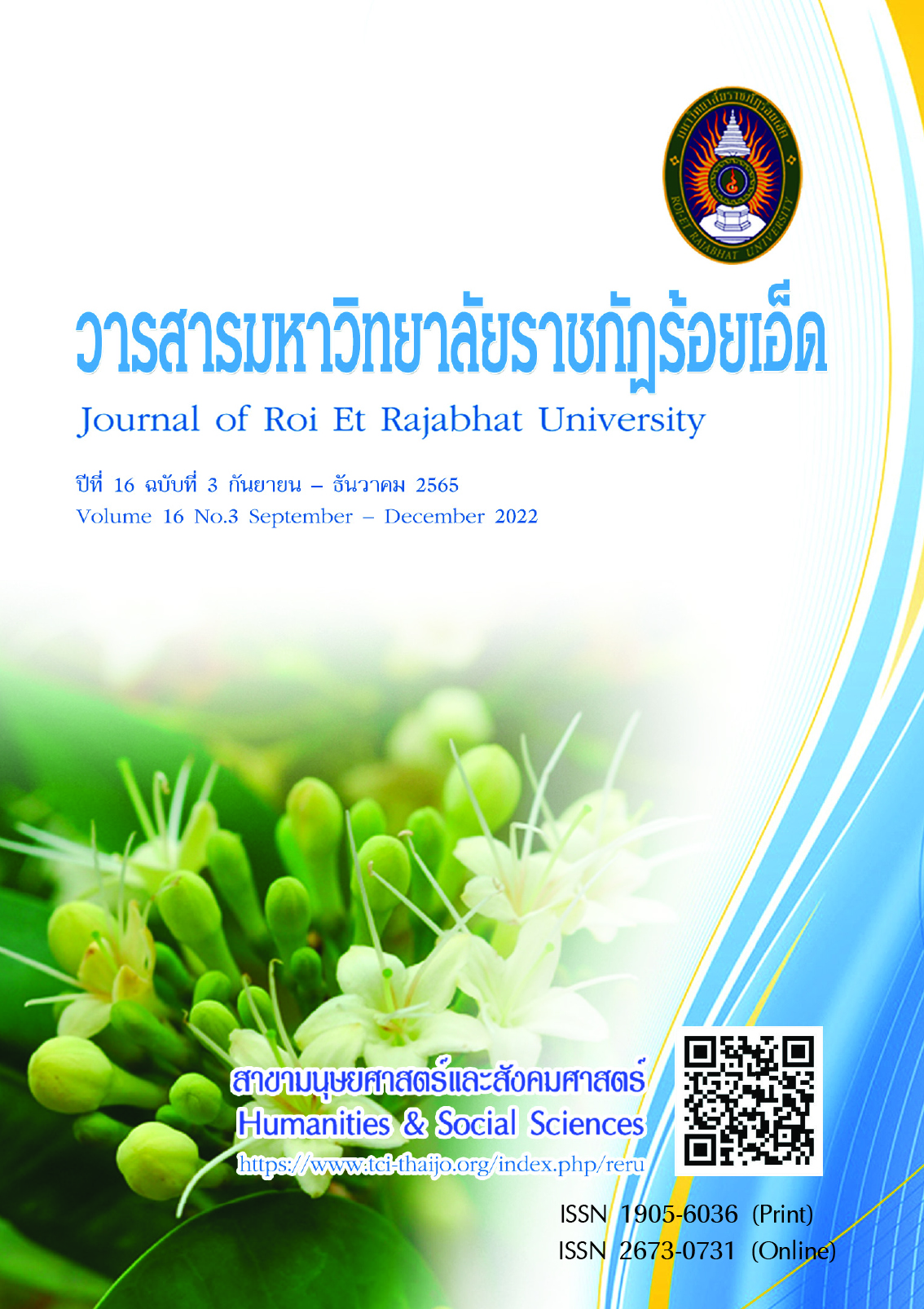Analysis of Factors Affecting Academic Performance of Computer Science Major Graduates using Imbalanced Datasets
Keywords:
Imbalanced datasets, Adaptive synthetic samplingAbstract
The objectives of this research were to 1) search for courses that affect students’ academic performance and 2) propose guidelines for curriculum revision and teaching and learning development of the courses that affect their academic performance. The data used as secondary information was retrieved from Ubon Ratchathani Rajabhat University Registration System database. The data covered 6,435 items of the registration of 399 computer science major students between the academic years 2015 to 2019. ADASYN method was used in selecting and adjusting the imbalanced dataset. Finally, 266 students
and 19 related courses were obtained. The courses were selected through Recursive Feature Elimination.
The results of the research revealed that there were 9 courses that had great effects on academic performance. Based on Univariate Selection and Feature Importance, it was found that the Design and Analysis of Algorithms course was the first priority course that affects academic performance.
Students who achieve a high grade in this course will also have high overall academic performance in other courses.
References
Alyahyan, E. and Dustegor, D. (2020). Predicting Academic success in higher education: literature review and best practices. International Journal of Educational Technology in Higher Education, 17(1), 1-22.
Ashfaq, U., Booma, P. M. and Mafas, R. (2020). Managing Student Performance: A Predictive Analytics using Imbalanced Data. International Journal of Recent Technology and Engineering (IJRTE), 8(6), 2277-2283.
Asif, R. (2015). Predicting Student Academic Performance at Degree Level: A Case Study. International Journal of Intelligent Systems and Applications, 01, 49-61.
Howard, J. S. (2018). Experimental Design and Analysis. Department of Statistics and Data Science, Carnegie Mellon University.
Jaidee, W. and Wannapee, N. (2020). The Study of Factors Affecting for On-time Graduation of Ungraduated Student Using Feature Selection Technique on Imbalanced Datasets. Journal of Information Science and Technology, 10(1), 75-84.
Jaidee, W. (2019). A Predictive Model for On-time Graduation Using SMOTE Technique and Ensemble Model on Imbalanced Datasets for Graduation Data. Proceeding of 12th RMUTTO Research Conference, 325-335.
Maheshwari, S., Agrawal, J. and Sharma, S. (2011). A New approach for Classification of Highly Imbalanced Datasets using Evolutionary Algorithms. International Journal of Scientific & Engineering Research, 2(7), 1-5.
Mythili, M.S. and Shanavas, A.R.M. (2014). An Analysis of students’ performance using classification algorithms. IOSR Journal of Computer Engineering (IOSR-JCE), 16(1), 63-69.
Rawengwan, P. (2017). A model for forecasting educational status of students. Proceeding of the National and International Graduate Research Conference, Khon Kaen University, 273-283.
Sales, A. Balby, L. and Cajueiro, A. (2016). Exploiting Academic Records for Predicting Student Drop Out:
a case study in Brazilian higher education. Journal of Information and Data Management,
(2), 166–180.
Vikas, C. Raykar, B. and Saha, A. (2015). Data Split Strategies for Evolving Predictive Models. European Conference, ECML PKDD 2015, Porto, Portugal, September 7-11, 2015, Proceedings, Part I, 3-19.
Zheng, Z., Cai, Y. and Li, Y. (2015). Oversampling Method for Imbalanced Classification. Computing and Informatics, 34, 1017-1037.
Downloads
Published
How to Cite
Issue
Section
License
Copyright (c) 2022 Roi Et Rajabhat University

This work is licensed under a Creative Commons Attribution-NonCommercial-NoDerivatives 4.0 International License.
บทความที่ได้รับการตีพิมพ์เป็นลิขสิทธิ์ของวารสารมหาวิทยาลัยราชภัฎร้อยเอ็ด
ข้อความที่ปรากฏในบทความแต่ละเรื่องในวารสารวิชาการเล่มนี้เป็นความคิดเห็นส่วนตัวของผู้เขียนแต่ละท่านไม่เกี่ยวข้องกับมหาวิทยาลัยราชภัฎร้อยเอ็ด และคณาจารย์ท่านอื่นๆในมหาวิทยาลัยฯ แต่อย่างใด ความรับผิดชอบองค์ประกอบทั้งหมดของบทความแต่ละเรื่องเป็นของผู้เขียนแต่ละท่าน หากมีความผิดพลาดใดๆ ผู้เขียนแต่ละท่านจะรับผิดชอบบทความของตนเองแต่ผู้เดียว





